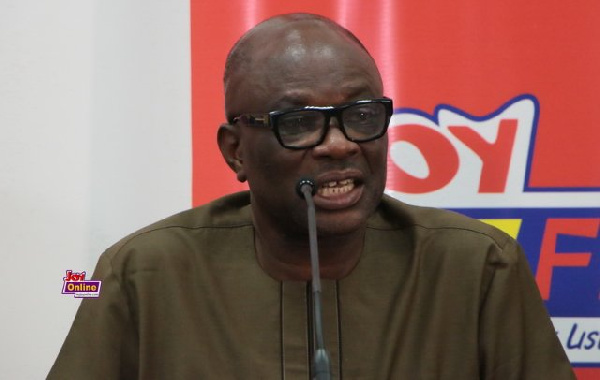The President of the Ghana Union of Traders Association (GUTA), Dr. Joseph Obeng, is concerned about possible trade tensions among respective signatories to the single continental trade market if existing laws on trade and investment from these respective economies are not harmonized.
“We have no clue about the customs procedures and infrastructure to facilitate tariff-free trade – this is troubling, especially when customs procedures are the heart of this single market arrangement,” he told Charles Ayitey on the Market Place.
All 54 countries who have signed up to the single market, possess individual trade and investment laws.
Ethiopia, for example, prohibited foreign investment in its financial sector, a potential breach of AfCFTA rules. Ghana too prohibits retail trade of foreigners in its local market, another breach of AfCFTA rules.
“As a result, the secretariat could see a flurry of legal challenges from countries on behalf of their corporations,” Dr. Jospeh Obeng added.
Meanwhile, the Ghana International Trade Commission (GITC) has called for patience even as the AfCFTA Secretariat completes negotiations on common tariffs, trade and investment laws.
“Rome was not built in a day. It was best for this single market initiative to have been implemented now than have it delayed over resolvable issues as this. Patience is what we need from trading economies and signatories to this agreement,” he stated on the Market Place.
The International Monetary Fund in its Staff Discussion Notes published on May 13 2020 projects that although the implementation of some operational aspects of the African Continental Free Trade Area (AfCFTA) has been temporarily suspended, the agreement would be very important element to support post-pandemic recovery and to foster economic growth in the medium term in sub-Saharan Africa through the creation of larger and more integrated markets and the promotion of intracontinental trade.
Importantly, the implementation of the AfCFTA will also reduce uncertainty on trading relations within the continent, which—together with an expanded and more integrated market—would foster both domestic and foreign direct investment and help boost economic activity as countries emerge from the pandemic.
For the Secretary-General of the AfCFTA, 2021 sets a new milestone in the economic history of Africa’s trade eco-space.
“Today, we not only celebrate the start of a new year but today, we give Africa a new beginning, with the start of trading as a free trade area under the AfCFTA,” Wamkele Mene stated.
Latest Stories
-
Boakye Agyarko urges reforms to revitalise NPP after election defeat
15 minutes -
Finance Minister skips mini-budget presentation for third time
15 minutes -
‘ORAL’ team to work gratis – Ablakwa
23 minutes -
Affirmative Action Coalition condemns lack of gender quotas in Transition, anti-corruption teams
32 minutes -
December 7 election was a battle for the ‘soul of Ghana’ against NPP – Fifi Kwetey
34 minutes -
Social media buzzing ahead of Black Sherif’s ‘Zaama Disco’ on December 21
48 minutes -
Afenyo-Markin still suffering from the massive defeat – Fifi Kwetey
56 minutes -
Retain Afenyo-Markin as NPP leader, he has experience – Deputy Speaker
1 hour -
Kufuor didn’t leave behind a strong economy – Fifi Kwetey
1 hour -
It won’t be business as usual, remain humble – Fifi Kwetey to party members
2 hours -
Ebenezer Ahumah Djietror appointed as new Clerk to Parliament
3 hours -
Actress Benyiwaa of ‘Efiewura’ TV series dead
3 hours -
Ashanti Regional Chief Imam dies at age 74
4 hours -
Africa Arts Network calls for tax reform to save Ghana’s theatre industry
4 hours -
SSTN Ghana Chapter reaffirms commitment to economic growth under new leadership
4 hours

